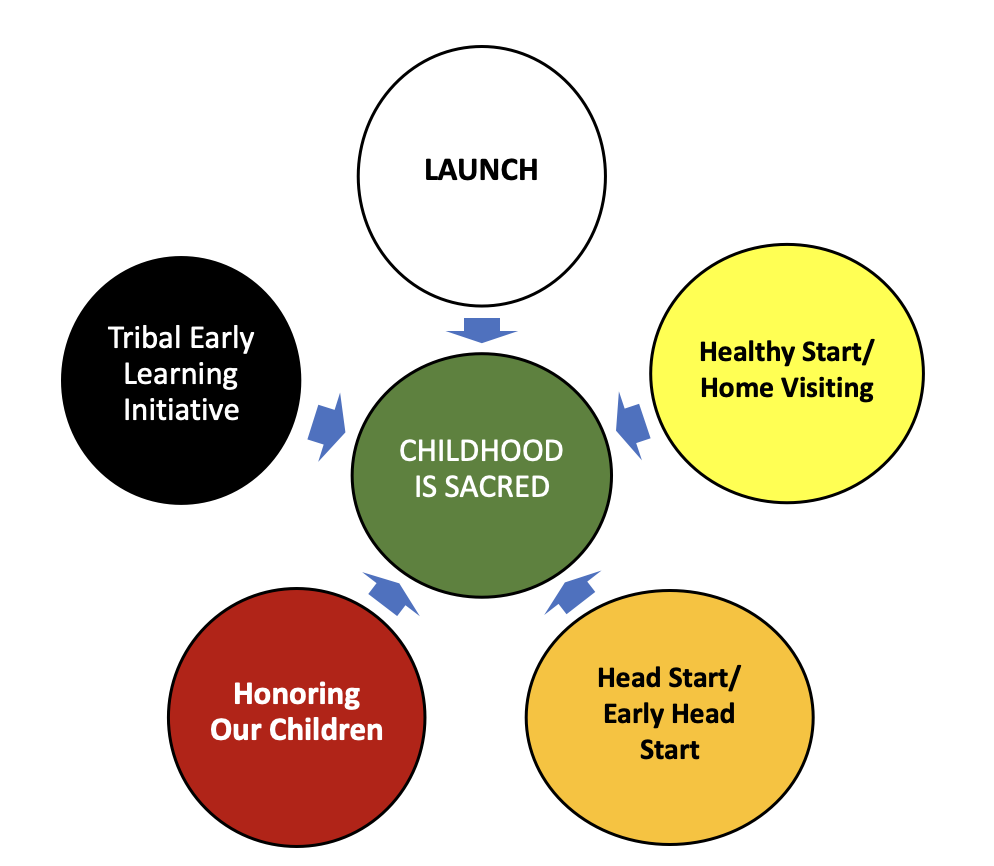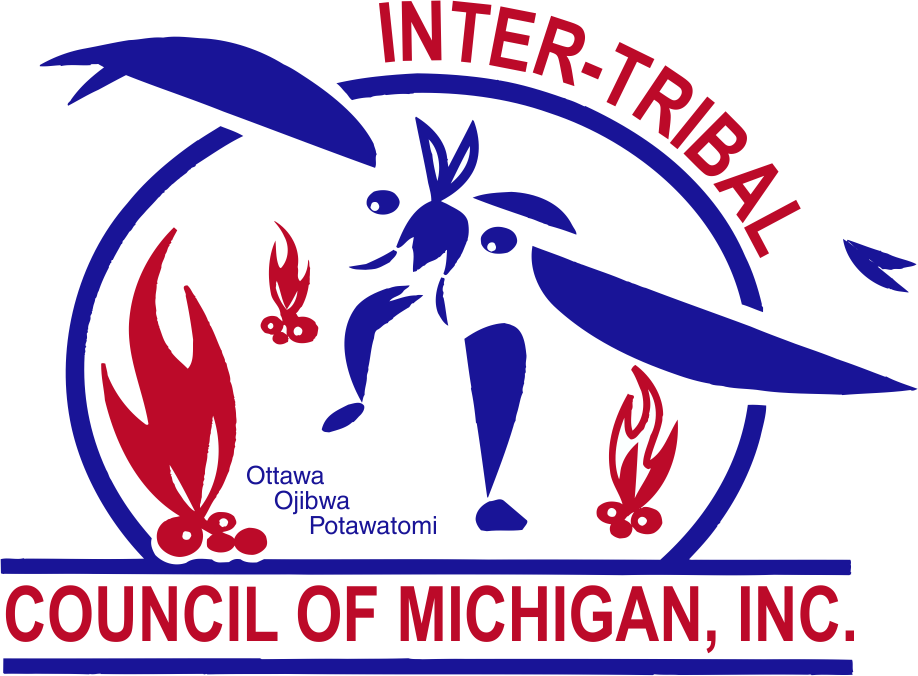History of Childhood is Sacred
History of Childhood is Sacred
Since 2012, ITCMI has been working with Tribes and Tribal Citizens across Michigan to erase the silos across services and programs that serve children 0-8 and their families. From community discussions to strategy innovation and implementation, everyone involved has been working to elevate the role of our early childhood providers, support parents and be more effective and efficient with existing resources in each community.

Healthy Start/Home Visiting
Learn more about Healthy Start and the Inter-Tribal Council of Michigan’s Home Visiting Network.
Head Start/Early Head Start
Head Start is a federal program that promotes the school readiness of children ages birth to 5 from low-income families by enhancing their cognitive, social and emotional development.
Honoring Our Children
The WKKellogg Foundation committed funds to identify Tribal priorities for children 0-8 in Education, Health, and Community Safety. This work included community discussions and family summits with tribal citizens from the 12 Federally Recognized Tribes in Michigan and in urban areas like Detroit and Grand Rapids. During this time, tribal families and leaders created a vision for children.
Notable briefs and presentations from this work includes:
- Michigan Native Children Report
- 2012 (Final 2012 by David Cournoyer) -forwarded in the email.
- HOC Planning Phase Report on website already
- TBCAC Cultural Adaptation Article on website already
- MCMCH GreatStart Sandbox presentation on website already
- HeadStart digital story link
Tribal Early Learning Initiative (TELI)
Through supplemental Tribal Home Visiting funding from the Administration of Children & Families, a core group of early childhood providers and families from five Tribes (BMIC, KBIC, LTBB, LVD, NHBP) continued the work of HOC by strategizing to increase collaboration and integration across community services and programs for children 0-5 years.
Historically, many of the various early childhood programs and services have worked in isolation. This effort focused on developing a more collaborative network. During this time, a Tribal wide Young Child Wellness Committee was formed with representatives from Tribal Home Visiting, HeadStart/Early HeadStart, and Child Care both at the Tribal, State and Federal level.
LAUNCH
The TELI project identified a gap in mental health supports for children and in 2016 LAUNCH was funded by SAMHSA to better serve the cultural, social, emotional, physical, and psychological needs of youth ages 0-8. Aiming to reduce leadership and policymaking silos, the project seeks to foster collaboration between health care, behavioral health, early childhood education, social services, and other programs servicing Native youth and their families.
The Project Has 4 Goals
- Strengthen Tribal Communities through the promotion of resources grounded in community language, culture and teachings.
- Increase community workforce capacity to address child and family mental health.
- Strengthen systems integration of community programs that support child and family mental health.
- Increase community efforts to engage in public education and awareness activities.
